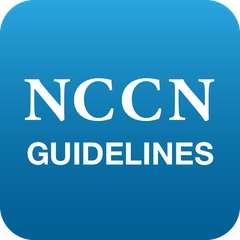
NCCN-Directed Guidelines Driving PV Treatment in Clinical Practice
Dr. Gerd examines the clinical choices involved in the management of PV, following the directives of NCCN guidelines.
Episodes in this series

Aaron Gerds, MD, MS: The NCCN [National Comprehensive Cancer Network] guidelines for polycythemia vera and the other MPNs [myeloproliferative neoplasms] are updated regularly. So certainly there’s a large effort to annually update them, where we go over the entire sets of guidelines to update and refine them. But as new developments come along, we update on the fly. Say a new therapy is approved for polycythemia vera. We would quickly add that to the guidelines in an ad hoc update, just simply keeping the link to the NCCN and guidelines readily available, so whatever is on the NCCN guidelines website is the most up-to-date version. Printing it out and having it on your desk might [allow it to] become outdated at some point. So certainly relying heavily on the website. The NCCN also has apps available where the guidelines are automatically updated within the app, so you don’t have to worry about visiting the website or printing out new guidelines. And the NCCN, as well as other entities, support regular education efforts, both virtually and in person. There’s the annual NCCN Hematologic Malignancies conference, where the guidelines are a key piece of that, where updates are given not only within the disease state, but specifically with an eye to the guidelines. Within the MPN world, there are lots of conferences and educational opportunities as well, both virtually and in-person. The big event here in North America is the American Society Hematology annual meeting, where updates are given within the disease field. But, certainly, looking toward the NCCN, the resources available there can keep you up to date, especially a lot of people have found the app to be very, very helpful.
Adherence to the NCCN guidelines for polycythemia vera is actually kind of a chicken and the egg issue. What came first? I think NCCN guidelines reflected everyday practice of taking care of patients with polycythemia vera before they were invented. So the MPN guidelines in general are relatively new compared to other guidelines for breast cancer or colon cancer. At that time, we focused on what the current practice was. Identifying patients [as] high risk, low risk,…reductive therapies in the high-risk cases, and so on and so forth. Now, over time, we’ve had to adapt the guidelines for new therapies, in particular the approval of ropeginterferon, and incorporate that in additional data has been published about ruxolitinib, particularly the MAJIC-PV trial. We’ve incorporated this information into the guidelines, which has altered or strengthened some of our recommendations. So certainly I think the guidelines…will help guide someone learning how to take care of patients with polycythemia vera. But I think it really does reflect the best practice in how practice is sustained throughout North America. So it’s kind of a bidirectional effort, where absorbing what is currently the standard of care practice [and] putting [it] in the guidelines to then help unify practice throughout the country. And while there [is] some data out there that looks at adherence to the guidelines in everyday practice, I would say that polycythemia vera is actually one of the ones that is a little bit more stringent. There are fewer treatment options. Kind of clear, low risk, high risk, “what do you do” process. So I think it’s a lot easier to take those guidelines and adhere to them closely.
Transcript is AI-generated and edited for clarity and readability.
Newsletter
Stay ahead of policy, cost, and value—subscribe to AJMC for expert insights at the intersection of clinical care and health economics.











